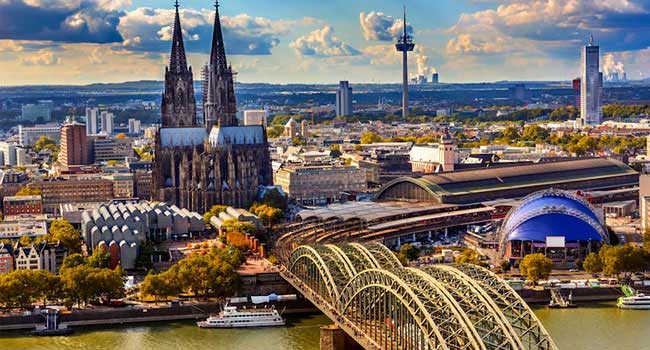Real estate in Germany, buying, selling and tourism

Germany, the economic powerhouse of Europe, offers a unique blend of bustling cities, charming villages, and breathtaking landscapes. This makes it an attractive destination for not only tourists but also potential property investors. This guide delves into the three facets of German real estate: buying, selling, and tourism.
Buying in Germany:
- Market Overview: The German real estate market is stable and growing, with demand outpacing supply in many areas. Prices vary greatly depending on location, type of property, and condition. Berlin, Munich, and Frankfurt are among the most expensive cities, while rural areas offer more affordable options.
- Investment Potential: Investing in German real estate can be lucrative, with rental yields generally higher than in other European countries. However, careful research and planning are crucial, considering factors like location, property type, and potential renovation costs.
- Buying Process: The process of buying property in Germany is well-defined and involves several steps, including finding a property, negotiating with the seller, engaging a notary, and obtaining financing. Consulting with a German real estate agent or lawyer is highly recommended for navigating the legalities.
Selling in Germany:
- Market Conditions: The strong demand for housing makes selling property in Germany relatively straightforward. However, it’s essential to price your property competitively and present it well to attract buyers quickly.
- Tax Implications: Capital gains taxes apply to property sales, though exemptions can be available depending on how long you owned the property. Consulting a tax advisor is crucial to understand your tax liability.
- Selling Process: Similar to buying, the selling process involves marketing the property, negotiating with potential buyers, engaging a notary, and transferring ownership. A real estate agent can help you navigate these steps and maximize your profit.
Tourism and Real Estate:
- Vacation Homes: Germany boasts numerous tourist destinations, making owning a vacation home an attractive option. Popular regions include the Bavarian Alps, the Baltic Sea coast, and the Mosel wine region.
- Short-Term Rentals: Platforms like Airbnb offer opportunities to rent out your property to tourists for short periods, generating additional income. However, local regulations on short-term rentals must be considered.
- Tourism-driven Investment: Investing in properties near tourist attractions can be lucrative, especially if they offer amenities catering to vacationers. However, research is crucial to understand the tourism potential of the specific location.
Additional Points:
- Financing: Mortgages are readily available in Germany for both residents and non-residents. However, foreign buyers may face stricter lending requirements.
- Language: Knowing German while buying or selling property is beneficial, but English is generally understood in major cities.
- Legal Framework: German property law is complex, so seeking legal advice is crucial for ensuring a smooth transaction.
In conclusion, the German real estate market offers exciting opportunities for buyers, sellers, and even tourists. Thorough research, careful planning, and professional guidance are key to successfully navigating this sector and benefiting from its potential.
I hope this information provides a helpful starting point for your inquiries about real estate in Germany. Feel free to ask any further questions you may have!tunesharemore_vertadd_photo_alternate




